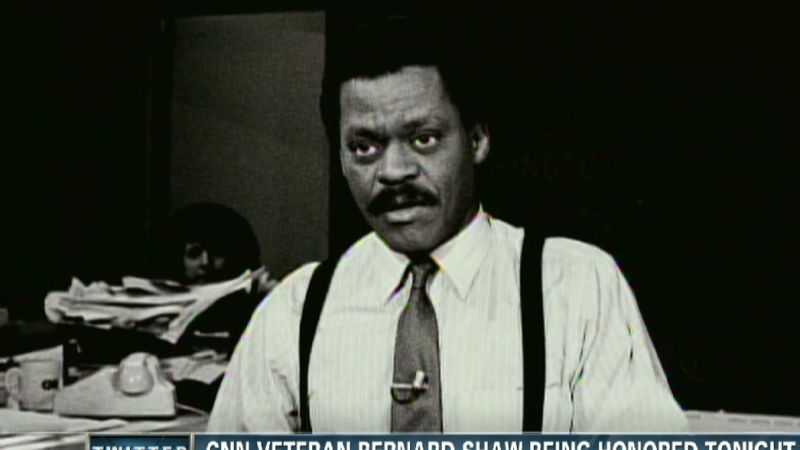Bernard Shaw: From Marine Corps to CNN Anchor
Bernard Shaw: From Marine Corps to CNN Anchor
Early Life
Born in Chicago, Illinois, in 1940, Bernard Shaw was a child of two blue-collar and hardworking parents. Though Shaw did not have a direct path into journalism, his interest in the news was evident from his visits to bookstores and reading of newspapers at a young age. He also participated in his school announcements going above the requirements set for him by seeking better techniques for broadcasting.
Aside from Shaw's journalistic endeavors, he was active in the US Marine Corps until 1962. During his service, Shaw worked in the Message Center as a specialist, and this position really allowed his interest in journalism to grow, especially in print. On weekends off, he often left his station to travel to Washington D.C. where he grew connections in the broadcasting industry. These trips introduced Shaw to Walker Cronkite, who was a CBS anchor at the time, and this relationship gave Shaw the chance to learn a lot about broadcasting and how he could make it a career. In 1962, Shaw decided to leave the US Marine Corps to pursue an education in broadcasting at the University of Illinois at Chicago until 1968.
Journalistic Career
Shaw's career began in Chicago as an anchor for the WNUS, which is also where he became more involved in political reporting. He worked his way up into becoming a White House correspondent for the Westinghouse Broadcasting Company, also based out of Chicago. Once he moved to Washington D.C., there was no way to stop his work ethic and drive to become an anchor like his mentor Cronkite.
On June 1, 1980, Bernard Shaw aired for the first time as CNN's first chief anchor. Shaw appeared on CNN as a chief anchor regularly, and his success can be seen through the many accomplishments he has made throughout his career. October 13, 1988, features one of Shaw's biggest moments on camera where he was the moderator for "the second presidential debate between George H. W. Bush and Michael Dukakis", which is outlined in a timeline of Bernard Shaw's career on CNN's site. Since the start of his work at CNN, this was by far Shaw's biggest role.
 |
| Along with Shaw's extraordinary experience with reporting on politics, he has been recognized around the world for his journalistic capabilities. |
Impact
Though Bernard Shaw decided to retire from CNN on February 28, 2001, he has made a lasting impact on the journalism industry and served as an inspiration for aspiring journalists. At the age of 60, Shaw has decided to pursue other ventures and enjoy life with his family. His goal to write an autobiography of his experiences at home and abroad will be a great piece of history for any young journalists to turn toward to see what it takes to become top-notch reporter.
In 2007, Shaw received the Chuck Stone Lifetime Achievement Award from the National Association of Black Journalists, which also demonstrates the impact he has made as a prominent African American journalist. His work has set a strong precedent for what great reporting coverage should look like. He has made history as a wartime correspondent not only in the United States, but around the world, showing how far one voice of impact can make.





Comments
Post a Comment